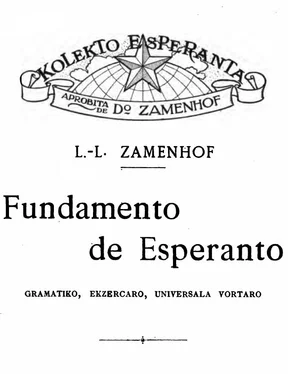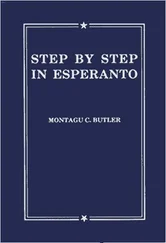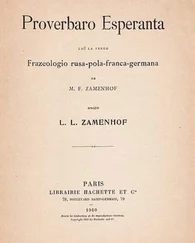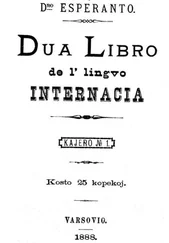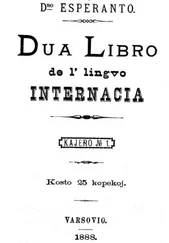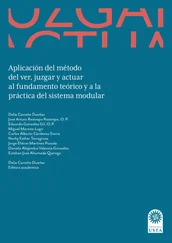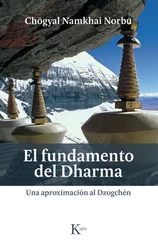16.The a of the article, and final o of substantives, may be sometimes dropped euphoniae gratia , e.g. de l’ mond'o for de la mond'o ; Ŝiller’ for Ŝiller'o ; in such cases an apostrophe should be substituted for the discarded vowel.
| Aa, a |
Bb, b |
Cc, c, z |
Ĉĉ, tsch |
Dd, d |
Ee, e |
Ff, f |
| Gg, g |
Ĝĝ, dsch |
Hh, h |
Ĥĥ, ch |
Ii, i |
Jj, j |
Ĵĵ, sh, j |
| Kk, k |
Ll, l |
Mm, m |
Nn, n |
Oo, o |
Pp, p |
Rr, r |
| Ss, ss |
Ŝŝ, sch |
Tt, t |
Uu, u |
Ŭŭ, kurzes u |
Vv, w |
Zz, s (wie in „lesen“) |
Anmerkung: ĝ lautet wie das englische g in gentleman ; ĵ ― wie das französische j in journal ; u ― wie das kurze u in glauben (wird nur nach einem Vokal gebraucht). Bei mangelnden Typen im Druck ersetzt man ĉ, ĝ, ĥ, ĵ, ŝ, ŭ durch ch, gh, hh, jh, sh, u .
1.Der bestimmte Artikelist la , für alle Geschlechter und Fälle, für die Einzahl und Mehrzahl. Einen unbestimmten Artikel gibt es nicht.
2.Das Hauptwortbekommt immer die Endung o . Der Plural bekommt die Endung j . Es gibt nur zwei Fälle: Nominativ und Akkusativ; der letztere entsteht aus dem Nominativ, indem die Endung n hinzugefügt wird. Die übrigen Fälle werden vermittelst der Präpositionen ausgedrückt: der Genitiv durch de (von), der Dativ durch al (zu), der Ablativ durch kun (mit), oder andere, dem Sinne entsprechende, Präpositionen. Z.B. la patr'o , der Vater; al la patr'o , dem Vater; la patr'o'n , den Vater; la patr'o'j'n , die Väter (Akkusativ).
3.Das Eigenschaftswortendet immer auf a . Deklinationen wie beim Substantiv. Der Komparativ wird mit Hülfe des Wortes pli (mehr), der Superlativ durch plej (am meisten) gebildet. Das Wort „als“ heißt ol . Z.B.: pli blank'a ol neĝ'o , weißer als Schnee.
4.Die Grundzahlwörter(undeklinirbar) sind folgende: unu (1), du (2), tri (3), kvar (4), kvin (5), ses (6), sep (7), ok (8), naŭ (9), dek (10), cent (100), mil (1000). Zehner und Hunderte werden durch einfache Anreihung der Zahlwörter gebildet; z.B.: kvin'cent tri'dek tri = 533 . Ordnungszahlwörter entstehen, indem sie die Endung des Adjektivs annehmen; z.B. kvar'a , vierter. Vervielfältigungszahlwörter ― durch Einschiebung des Suffixes obl ; z.B.: tri'obl'a , dreifach. Bruchzahlwörter ― durch on ; z.B. kvar'on'o , ein Viertel. Sammelzahlwörter ― durch op ; z.B. du'op'e , selbander. Distributive Zahlwörter ― durch das Wort po ; z.B. po kvin , zu fünf. Außerdem gibt es Substantiv- und Adverbialzahlwörter; z.B. cent'o , das Hundert, du'e , zweitens.
5.Die persönlichen Fürwörtersind: mi (ich), vi (du, Ihr), li (er), ŝi (sie), ĝi (es; von Thieren oder Sachen), si (sich), ni (wir), ili (sie [Mehrzahl]), oni (man). Possessive Pronomina werden durch die Hinzufügung der Endung des Adjektivs gebildet. Die Pronomina werden gleich den Substantiven deklinirt. Z.B.: mi'a , mein, mi'n , mich.
6.Das Zeitworthat weder Personen noch Mehrzahl; z.B. mi far'as , ich mache; la patr'o far'as , der Vater macht; ili far'as , sie machen.
Formen des Zeitwortes:
a) Das Präsens endet auf as ; z.B. mi far'as , ich mache.
b) Die vergangene Zeit ― auf is ; z.B. li far'is , er hat gemacht.
c) Das Futurum ― auf os ; z.B. ili far'os , sie werden machen.
ĉ) Der Konditionalis ― auf us ; z.B. ŝi far'us , sie würde machen.
d) Der Imperativ ― auf u ; z.B. far'u , mache, macht; ni far'u , lasset uns machen.
e) Der Infinitiv ― auf i ; z.B. far'i , machen.
f) Partizipium präsentis aktivi ― auf ant ; z.B. far'ant'a , machender; far'ant'e , machend.
g) Partizipium perfekti aktivi ― int ; z.B. far'int'a , der gemacht hat.
ĝ) Partizipium futuri aktivi ― ont ; far'ont'a , der machen wird.
h) Partizipium präsentis passivi ― at ; z.B. far'at'a , der gemacht wird.
ĥ) Partizipium perfekti passivi ― it ; z.B. far'it'a , gemacht.
i) Partizipium futuri passivi ― ot ; far'ot'a , der gemacht werden wird.
Alle Formen des Passivs werden mit Hülfe der entsprechenden Form des Wortes est (sein) und des Partizipium passivi des gegebenen Zeitwortes gebildet, wobei die Präposition de gebraucht wird; z.B. ŝi est'as am'at'a de ĉiu'j , sie wird von Allen geliebt.
7.Das Adverbiumendet auf e ; Komparation wie beim Adjektiv. Z.B: mi'a frat'o pli bon'e kanta'as ol mi = mein Bruder singt besser als ich.
8.Alle Präpositionenregieren de Nominativ.
9.Jedes Wort wird gelesen so wie es geschrieben steht.
10.Der Accent fällt immer auf die vorletzte Silbe.
11.Zusammengesetzte Wörter entstehen durch einfache Anreihung der Wörter, indem man sie durch hochstehende Striche trennt {5}. Das Grundwort kommt zuletzt. Grammatikalische Endungen werden als selbstständige Wörter betrachtet. Z.B. vapor'ŝip'o (Dampfschiff) besteht aus vapor , Dampf, ŝip , Schiff, und o =Endung des Substantivs.
12.Wenn im Satze ein Wort vorkommt, das von selbst eine verneinende Bedeutung hat, so wird die Negation ne weggelassen; z.B. mi nenio'n vid'is , ich habe Nichts gesehen.
13.Auf die Frage „wohin“ nehmen die Wörter die Endung des Akkusativs an; z.B. tie , da; tie'n , dahin; Varsovi'o'n , nach Warschau.
14.Jede Präposition hat eine bestimmte, feste Bedeutung; ist es aber aus dem Sinne des Satzes nicht ersichtlich, welche Präposition anzuwenden ist, so wird die Präposition je gebraucht, welche keine selbstständige Bedeutung hat; z.B. ĝoj'i je tio , sich darüber freuen; rid'i je tio , darüber lachen; enu'o je la patr'uj'o , Sehnsucht nach dem Vaterlande, etc. Die Klarheit leidet keineswegs darunter, da doch dasselbe in allen Sprachen geschieht, nämlich, daß man in solchen Fällen eine beliebige Präposition begraucht, wenn sie nur einmal angenommen ist. In der internationalen Sprache wird in solchen Fällen immer nur die eine Präposition je angewendet. Statt der Präposition je kann man auch den Akkusativ ohne Präposition gebrauchen, wo kein Doppelsinn zu befürchten ist.
Читать дальше
